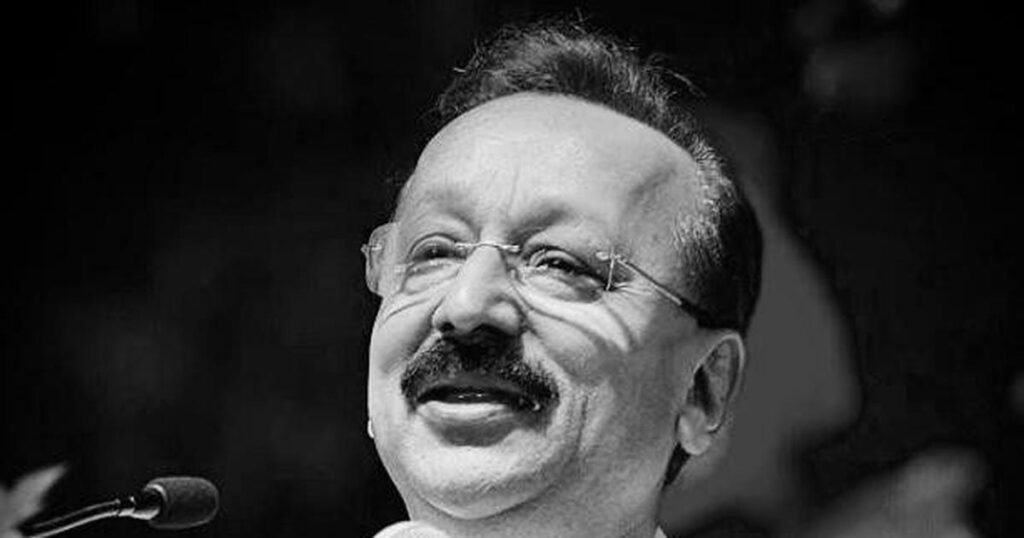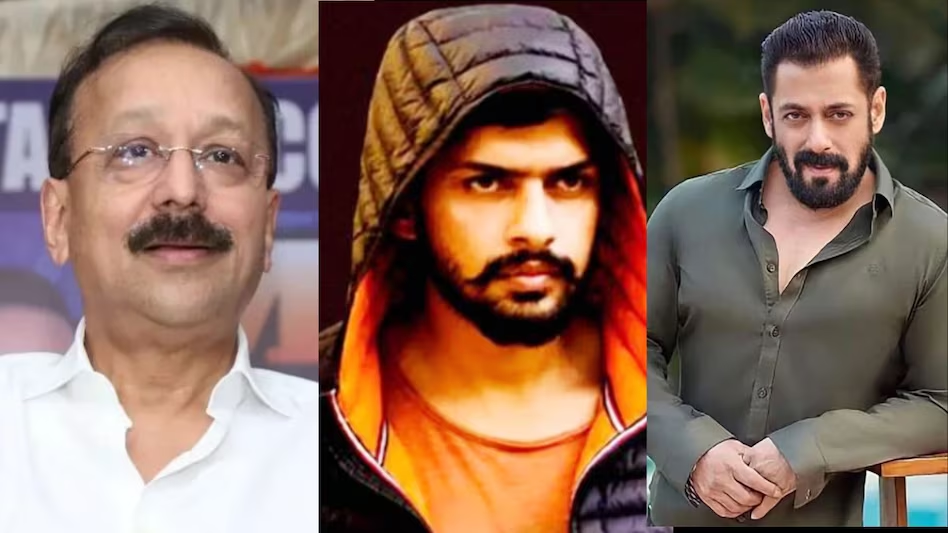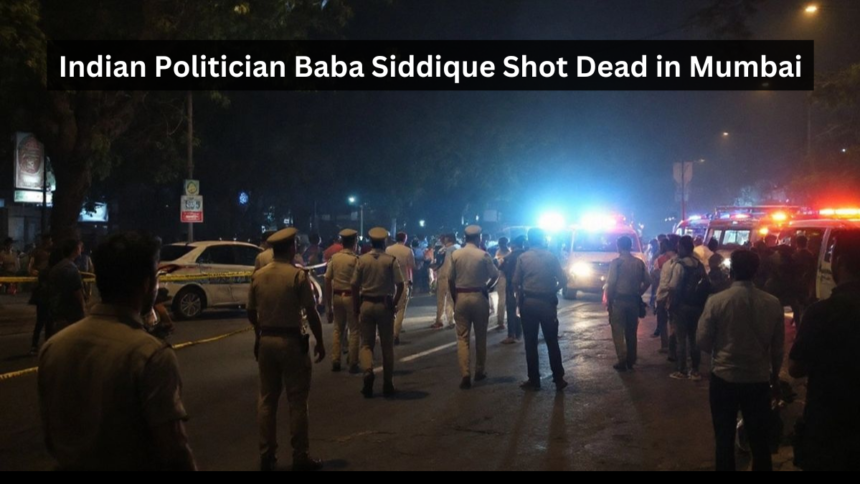In a tragic and shocking incident, Baba Siddique, a prominent Indian politician, was assassinated in broad daylight in Mumbai. The news has sent waves of disbelief through political circles and the general public, especially since it happened right outside his son’s office. This incident has not only shaken Maharashtra’s political scene but also raised concerns about the safety of public figures, particularly with state elections just around the corner.
Let’s break down what happened, why this incident is significant, and how it impacts the current political landscape.
What Exactly Happened?
On an evening that seemed ordinary, Baba Siddique was attacked in Bandra, a bustling area of Mumbai. Siddique was shot multiple times by assailants outside his son Zeeshan Siddique’s office. Despite being rushed to the hospital immediately, he couldn’t survive the attack. This incident took place during a time when the city was already on heightened security due to a major festival, which makes the breach of safety measures even more shocking.
Eyewitnesses have described the attack as swift and calculated, suggesting that the assailants had been following Siddique for some time. The attackers fled the scene, and the police were left scrambling for clues as the news of his death spread like wildfire.
Who Was Baba Siddique?

Baba Siddique was no stranger to the political scene in Maharashtra. He had served for decades, initially as a member of the Congress party before switching allegiances to the Nationalist Congress Party (NCP) earlier this year. His recent move to the NCP was seen as strategic, especially with the upcoming state elections, which have been fraught with tension and political rivalry.
Beyond politics, Siddique was known for his close ties with Bollywood and his social presence, particularly for hosting grand Iftar parties that brought together some of the biggest names in the Indian film industry. Figures like Salman Khan and Shilpa Shetty were close associates of Siddique, highlighting his influence beyond just politics.
Political Tensions and Rivalry: A Possible Motive?
The timing of this assassination has raised many questions. The state of Maharashtra is gearing up for crucial elections, and the political atmosphere has been charged with tension. Siddique’s move from the Congress to the NCP, a significant shift in political allegiance, might have added to this already volatile situation. Was this a politically motivated attack? While nothing has been confirmed, the timing is suspicious enough to fuel such speculations.
In Indian politics, rivalries often run deep, and violence has, unfortunately, been part of the political narrative in the past. With Siddique’s death, the fear of politically motivated violence has once again come to the forefront.
The Arrests and Investigation: Who’s Responsible?

Shortly after the assassination, two suspects were arrested: Gurmail Baljit Singh and Dharamraj Kashyap. Both are reportedly associated with the infamous Lawrence Bishnoi gang, a criminal group implicated in numerous high-profile murders. This connection raises more questions than it answers. The Bishnoi gang has long been linked with criminal activities, including the murder of popular rapper Sidhu Moose Wala, making them a formidable force in organized crime in India.
But what was the motive behind Siddique’s murder? Was it purely political, or was there something more personal at play? Some reports suggest that Siddique’s involvement in a controversial slum rehabilitation project might have led to disputes, though nothing has been confirmed yet. The investigation is ongoing, and the authorities are exploring every possible angle to get to the bottom of this tragic incident.
A City in Mourning: Reaction from Political and Social Circles
The news of Baba Siddique’s death hit hard, not just within political circles but also across the entertainment industry. As mentioned earlier, Siddique was known for his grand Iftar parties, which were attended by the who’s who of Bollywood. Salman Khan, in particular, was known to be very close to him. When the news broke, Khan reportedly canceled his ongoing shoot to stand by the grieving family, underscoring just how personal this loss was to many in the Bollywood community.
From a political perspective, leaders from various parties expressed shock and sorrow. Maharashtra’s Deputy Chief Minister, Ajit Pawar, called the attack a “cowardly act” and assured the public that a thorough investigation would follow. However, opposition parties have not held back in criticizing the government for security lapses, questioning how such a prominent political figure could be targeted in an area with supposedly heightened security.
What This Means for Security in India
This assassination has once again raised serious concerns about the safety of public figures in India. In a country where political rivalry can often turn violent, the protection of political leaders has become a matter of national importance. With the Maharashtra state elections coming up, there’s an even greater focus on ensuring that no other politician faces a similar fate.
The real question is, are the existing security measures enough? As public figures increasingly become targets of violence, it’s evident that more needs to be done to protect them. Whether it’s bolstering police efforts or rethinking the way we handle security at political events, there’s a growing call for reform in this area.
A Larger Problem: Political Violence in India
While Baba Siddique’s assassination has captured the headlines, it’s far from an isolated incident. India has seen numerous instances of political violence in the past, from high-profile assassinations to targeted attacks on local leaders. In a country as politically diverse and often divided as India, these incidents remind us of the deep-seated issues within the system.
The need for peace and political discourse that doesn’t resort to violence is more urgent than ever. Siddique’s death should serve as a wake-up call for the nation, pushing for a safer environment where differences in political ideologies don’t lead to such tragic outcomes.
Conclusion
Baba Siddique’s assassination has left a deep scar on Maharashtra’s political landscape. The incident, filled with questions and speculations, has put the spotlight on the rising concerns over political violence and public figure security in India. As investigations continue, one can only hope that justice will be served, not just for Siddique’s family but for the political system that is increasingly threatened by such acts of violence.
In the end, we must ask ourselves: What does this mean for the future of Indian politics? Can we ensure the safety of our leaders, or are we headed towards an even more violent political era? These questions need to be answered soon, rather than later.

